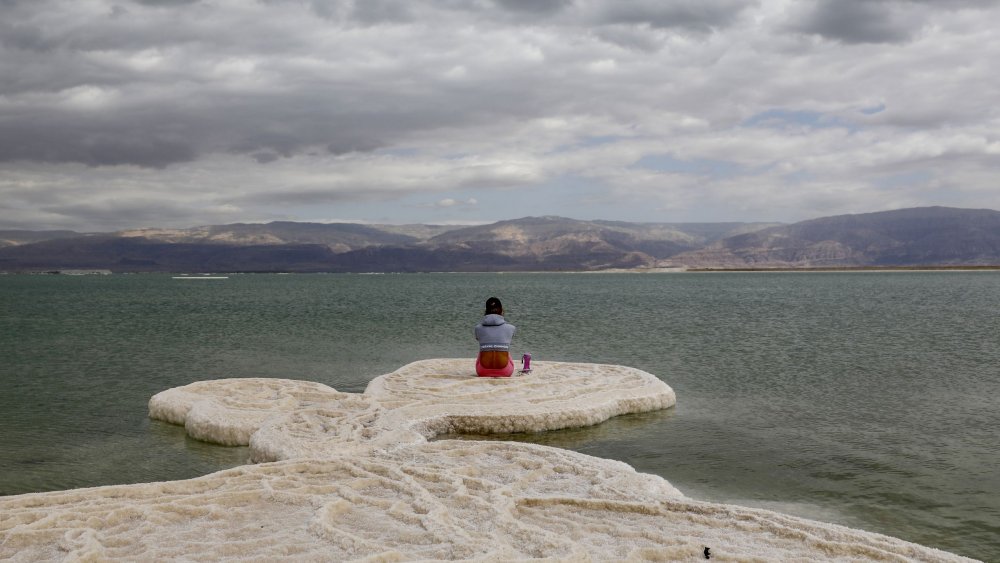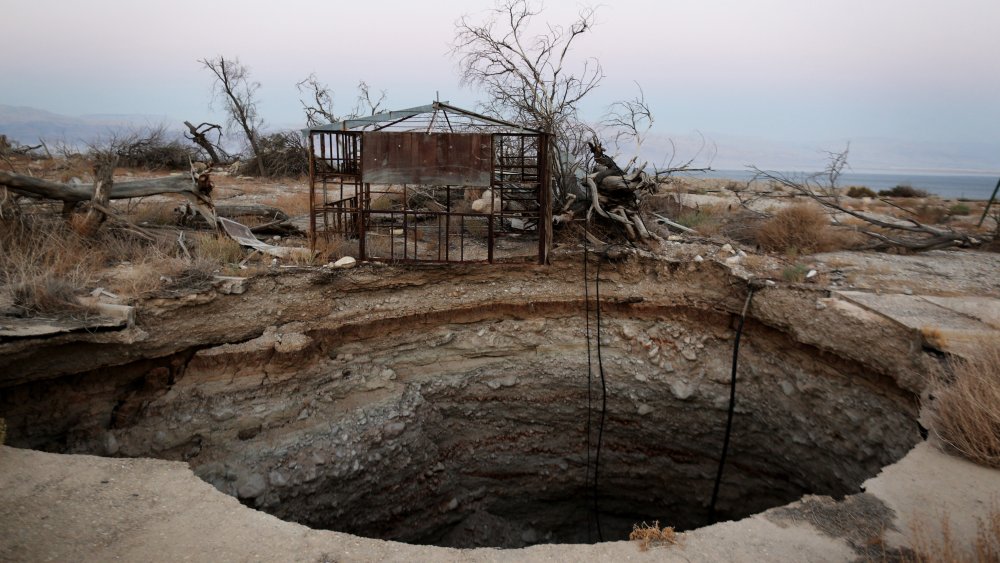Why The Dead Sea Is Dying
Located at the lowest point on Earth's surface, per Britannica, the Dead Sea — or "Sea of Death" (Al-Baḥr Al-Mayyit) as it's called in Arabic — isn't a lake of fire, but it burns like hell. It's situated between the scorching borders of Jordan and Israel, where summers become "oppressively hot." According to the BBC, the Dead Sea contains about 10 times as much salt as seawater and ranks fifth on the list of the world's saltiest bodies of water. Its extreme salinity makes it virtually unlivable to non-bacterial organisms. Plus, it tastes like hypertension and regret, and getting that insanely salty water in your nose feels like snorting a cheese grater.
If you can look past the toxic saltiness and infernal burning, you'll see a font of religious, cultural, and commercial significance. In biblical times of strife, the barren area surrounding the Dead Sea became an oasis to King David and later King Herod. The caves northwest of the death water became a haven for the Dead Sea Scrolls, which helped historians see the light about ancient Judaism, revealing hitherto unseen similarities to early Christianity, according to the Library of Congress. Additionally, the Dead Sea attracts people from all walks of life. In 2017, roughly half of the record-setting 3.6 million tourists who visited Israel went to the Dead Sea, via the Times of Israel. But now this deathly desert oasis is vanishing like a mirage.
The Dead Sea is living up to its name
If you take a dip in the Dead Sea, you'll probably find yourself feeling like the opposite of the Titanic, because as the BBC points out, swimmers can't sink in it. Unfortunately the sea is not unsinkable and the water level has dropped precipitously as the sun has dried it up amid a hellish years-long drought. As the sea recedes, ginormous sinkholes form, some of which are as big as basketball courts, according to Business Insider.
The sinkhole problem emerged in the 1980s, and in 2018, NBC reported that 6,000 sinkholes had formed. These gaping maws in the earth thirstily swallow roads and buildings. Some beaches and resorts have had to close, and tourism, much like the sea, is in danger of drying up. Some experts expect the Dead Sea to completely die off by 2050 if nothing is done. One proposed solution is to partially replenish the Dead Sea with a different biblical body of water: the Red Sea. Hearkening to the tale of Moses, the Red Sea may save the day by parting with itself.

